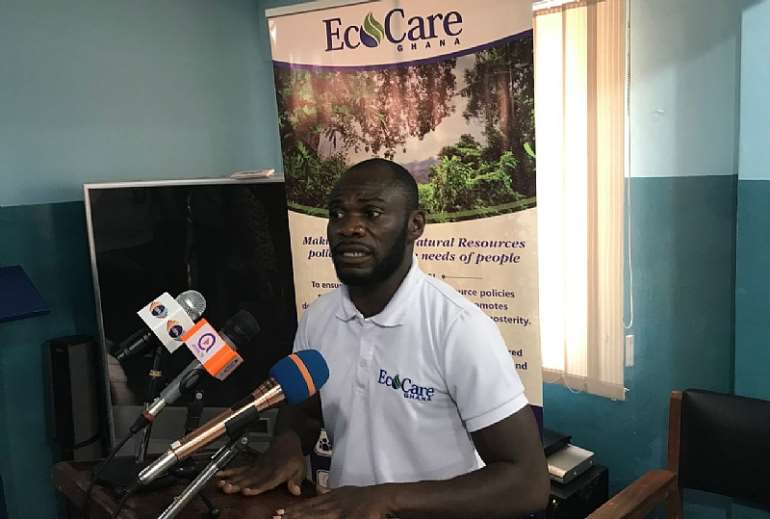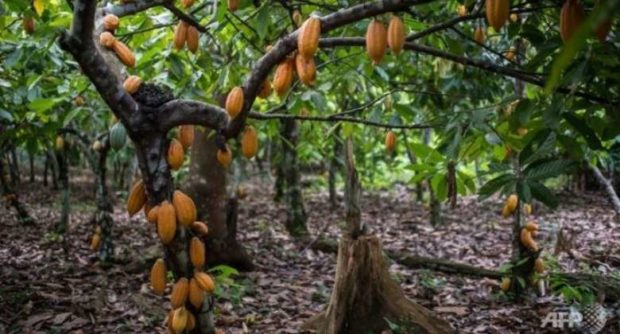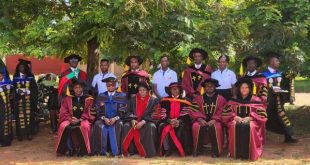Ghana since 2019 has lost over 39,400 hectares of forest due to activities of cocoa production, this has been disclosed by global advocacy organisation, Mighty Earth in its latest report.
The report dubbed ‘Sweet Nothings’ raises concerns on how cocoa is still driving the destruction of protected areas in cocoa-growing countries.
Having focused its study on Ghana and Cote d’Ivoire, Mighty Earth further discloses that the latter since 2019 also lost 19,421 hectares of its forest due to activities of cocoa production.
“Sweet Nothings: How the Chocolate Industry has Failed to Honor Promises to End Deforestation in Cocoa Supply Chains reveals that, even after the industry published action plans in 2019, Côte d’Ivoire lost 19,421 hectares – 74.9 sq. mi. – of forest within cocoa growing regions and Ghana lost 39,497 hectares – 152.5 sq. mi. This amounts to a combined area equivalent to the size of the city of Madrid, Seoul, Chicago,” part of a release issued by Mighty Earth after publishing findings of its report has said.
Addressing a press conference in Accra to disclose some findings of the Mighty Earth report, Obed Owusu-Addai who is managing campaigner at EcoCare Ghana said the government should collaborate with chocolate companies and ensure pledges made some five years ago in the Cocoa Forest Initiative (CFI) are adhered to.

“What we have found through this report is that five years down the line deforestation caused by Cocoa is still happening. We are not saying that Cocoa alone is causing deforestation but we are looking at the contribution of Cocoa to deforestation and that is what this report is about.
“The recommendation in this report is that the governments of Ghana and Ivory Coast should work with chocolate companies to go back to the drawing board, refer to the pledges that they made including not sourcing from forest reserves, and abide by them,” he told journalists on Monday.
The Cocoa & Forests Initiative is an active commitment of top cocoa-producing countries with leading chocolate and cocoa companies to end deforestation and restore forest areas, through no further conversion of any forest land for cocoa production.
Below is the key findings from the Mighty Earth Sweet Nothings report:
- Four and half years after chocolate companies and governments committed in the CFI to a ban on establishing any new cocoa farms, overall levels of deforestation remain near record highs.
- Within cocoa growing regions, Côte d’Ivoire lost 19,421 hectares (ha) – 74.9 sq. mi. – (2%) of its forest since the CFI action plans were published in January 2019, whilst Ghana has lost an astonishing 39,497 ha – 152.5 sq. mi. – of forest with a staggeringly high rate of deforestation of 3.9%. This amounts to a combined area of tropical forest lost in the two countries equivalent to an area the size of the cities of Madrid, Seoul, or Chicago.
- In Ghana, 2020 tree cover loss countrywide was 370% higher since January 2019 than it was between 2001-2010, and 150% higher than the average tree cover loss between 2011-2019.
- Average countrywide tree cover loss in Côte d’Ivoire has been 230% higher in the period since January 2019 than it was between 2001-2017, and 340% higher than the average loss during the 2000s.
- Deforestation is still found throughout protected areas in Côte d’Ivoire and Ghana, with satellite data analysis and observations from Mighty Earth’s field investigation in Côte d’Ivoire revealing that cocoa expansion is playing a major role in this encroachment.
By Eric Nana Yaw Kwafo
 Home Of Ghana News Ghana News, Entertainment And More
Home Of Ghana News Ghana News, Entertainment And More





